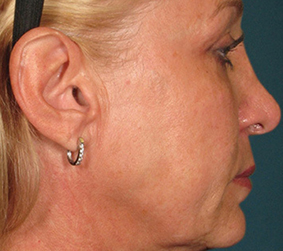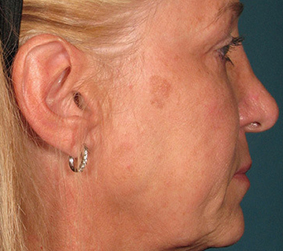Eczema, Psoriasis, and More
From Rosacea to Warts and Moles, South Shore's South Coast Dermatology Works With Skin Conditions
There are seemingly countless skin conditions that can impact a person's health and appearance, including eczema and psoriasis. The South Shore's medical dermatology team at South Coast Dermatology is trained and experienced in diagnosing a wide variety of conditions.
While some skin conditions—such as certain rashes or infections—are curable, others—such as eczema and psoriasis—are chronic conditions that can only be managed. Thanks to decades of research and modern medical advances, in many cases the symptoms can be mitigated to bring relief.
Send a message online today to set up a consultation to discuss any of a number of skin conditions, including eczema and psoriasis, in Weymouth, the South Shore, and all of Massachusetts at South Coast Dermatology. Call 781.335.9700 for more information.
Eczema
Eczema is the term for a family of skin conditions, all recognizable by the red, itchy inflammations they cause. A common problem in the United States, eczema frequently begins in childhood, and even infancy. Since there is no cure, treatment focuses on reducing the severity of eczema symptoms, as well as reducing the chance of flare-ups by mitigating triggers.
Psoriasis
Like eczema, psoriasis comes in multiple forms, each marked by fast-growing skin cells that cause often-scaly lesions to develop on the body. Psoriasis is frequently found on joints or the scalp and can range from small plaques to pustules on the hands and feet to painfully itchy red bumps all over the body. Management of symptoms and control of possible triggers are the goals of treatment.
Rosacea
Characterized by persistent redness, rosacea is a condition that appears mainly on the face, but can also spread elsewhere. The redness can manifest as obvious blushing or acne-like bumps. Treatment involves identifying triggers and easing any discomfort.
Warts
Warts come from a virus that causes bumpy growths to develop on the skin, virtually anywhere on the body. They may go away on their own over time, but due to the fact that they are contagious and may be unsightly or uncomfortable, many people seek to have them removed cryogenically (freezing with liquid nitrogen) or by other means.
Moles
Moles in and of themselves are benign, but skin cancer growths can resemble moles—or even develop within a mole. Of particular concern are moles that stand out due to their size, shape, color, or evolution. Patients are encouraged to routinely check their own moles for possible signs of cancer, as well as to schedule regular skin checks with a dermatologist.
Alopecia/Hair Loss
The technical term for hair loss, alopecia may be caused by any number of factors, from stress to medication to genetics. Examining a patient's pattern of loss and determining a cause is the first step in developing a plan. In some cases, a change in diet or simple patience may be all that is necessary. Other cases, such as androgenic alopecia (male- or female-pattern baldness), require a more involved treatment strategy.
Fungal Infections
Fungus can infect the skin, hair, and nails, causing visible discolorations, discomfort, and more. A common complaint is athlete's foot. Dermatologists can help to diagnose and treat a range of fungal infections.
Shingles
A re-activation of the chicken pox virus, shingles most often occurs later in a person’s life, taking the form of a painful rash marked by redness and blisters. Shingles is not life threatening and must be allowed to run its course, but treatment is available to help manage the pain or shorten its duration.

Our Specials
Stay up to date with South Coast Dermatology discounts and specials for beautiful, healthy skin.... For less!
Read MoreSeborrheic Keratosis
This waxy growth is completely benign and can be removed in a variety of ways. It may resemble a wart, mole, or skin cancer-related lesion, so—as with any suspicious lesion—it should be identified by a dermatologist.
Get help with eczema and other skin conditions at South Coast Dermatology, serving the South Shore and beyond in Massachusetts. To arrange a consultation, send a message online. Call 781.335.9700 for more information.


























